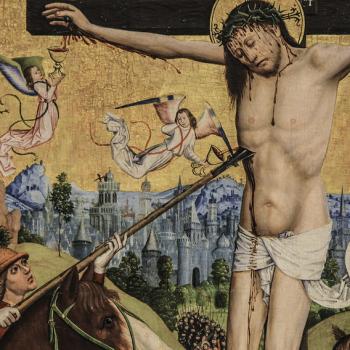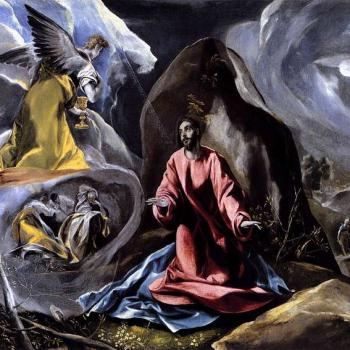We saw the movie Noah. It had some good cinematic touches (such as the imagery with the seven days of creation), and I don’t begrudge some of the imaginative liberties (such as having the animals be in suspended animation on the ark). I was even finding myself liking it for awhile. Some of the criticisms, I saw, were ill founded. (That they made Noah a vegetarian? Well, compare Genesis 1:28-30 and Genesis 9:2-4, which suggests that God gave permission to eat animals after the flood.) But the flaws in the movie kept getting more and more damaging. Like an ark that has a few leaks, which let in more and more water, the force of which makes the leaks bigger, until the sides stave in and the vessel goes down to the watery depths.
The movie had two kinds of flaws. First, those of substance: the butchery of the source material, which came from not understanding the original story; the gnostic twist of making “the creator” the bad guy; the anachronism of rendering an ancient apocalypse in terms of today’s apocalyptic fears about the environment and the accompanying controversies among those who have those fears (man as nature’s cancer; the human race should die out to bring the environment back to life). Second, flaws of art: For example, if you are going to have angelic beings that come to earth and assume a material form, doesn’t that call for imagery that is wondrous, mysterious, and sublime? Instead, the imagery is ludicrous, as the angels become cheesy tottering rock monsters, as in Galaxy Quest.
A more serious flaw of art comes from the flaw of substance. The whole point of the story is that Noah and his family, along with a fertile remnant of the creation, are being saved from judgment and destruction. If Noah was convinced that he and his family were also supposed to die out, why, when it started to rain, did they go into the ark? Portraying him as someone who thought he was supposed to exterminate his family–as a way of obeying the “creator,” no less–contradicts not only the Bible but it contradicts the movie’s own plot, causing it to not make any sense. According to both the Bible and the movie, Noah was supposed to be a “righteous” man, but his portrayal in the latter part of the movie as a sort of Peter Singer bioethicist contradicts his character.
The best thing that can be said about the movie is that it defamiliarizes the story of Noah and the Ark. As one of my former students said, it rescues it from the flannelboard version he learned in Sunday School, as a nice children’s story about animals. No, the Biblical account is about God’s very scary judgment against sin, but it is also about salvation from that judgment. Actually, the account of the Flood is about baptism–which is death and new life, a drowning and a cleansing, which places us in the Ark of the Church:
For Christ also suffered once for sins, the righteous for the unrighteous, that he might bring us to God, being put to death in the flesh but made alive in the spirit, in which[c] he went and proclaimed to the spirits in prison, because they formerly did not obey, when God’s patience waited in the days of Noah, while the ark was being prepared, in which a few, that is, eight persons, were brought safely through water. Baptism, which corresponds to this, now saves you, not as a removal of dirt from the body but as an appeal to God for a good conscience, through the resurrection of Jesus Christ, who has gone into heaven and is at the right hand of God, with angels, authorities, and powers having been subjected to him. (1 Peter 3:18-22)











